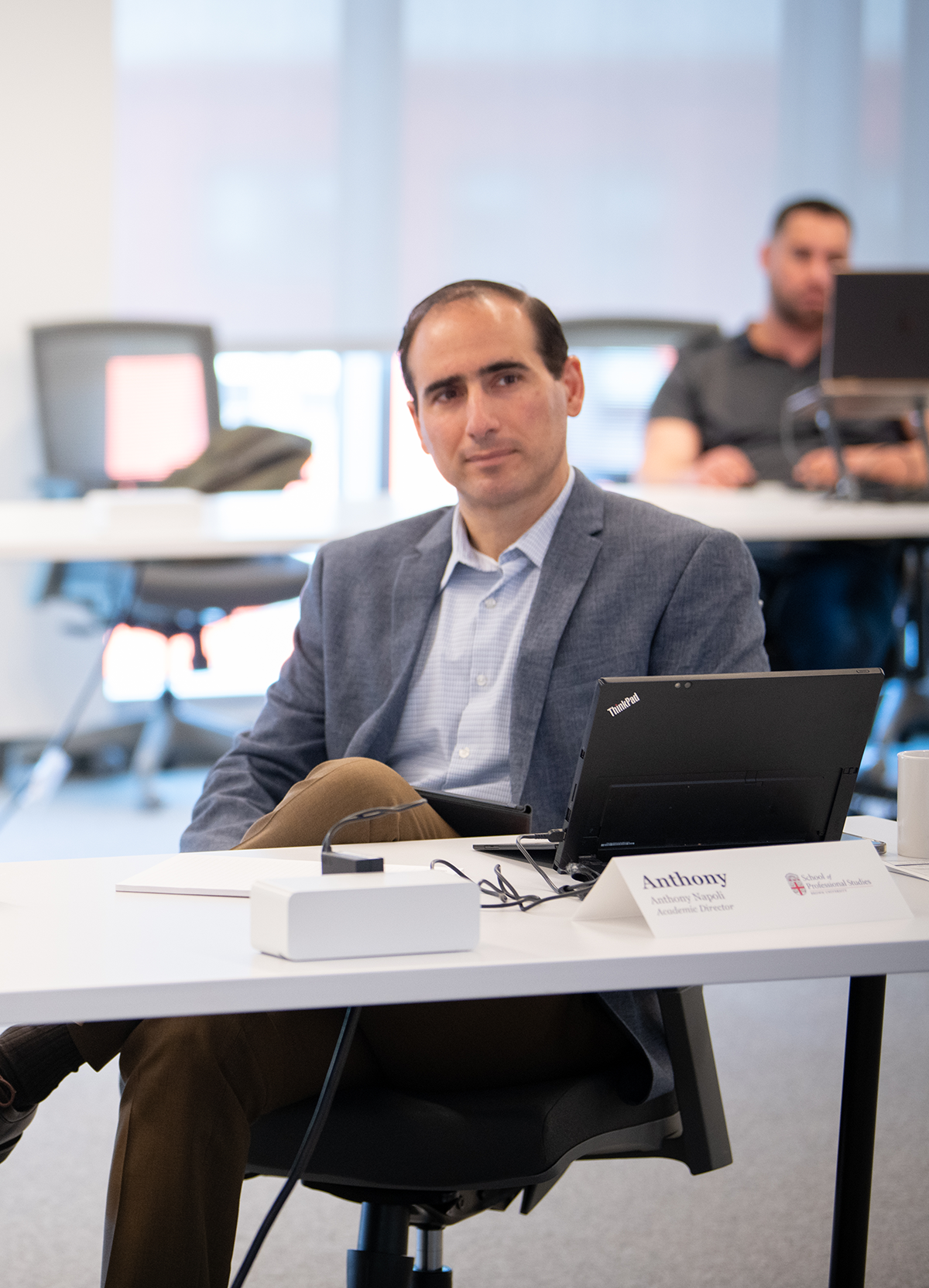PROVIDENCE, R.I. [Brown University] While he was a student in the Master’s in Healthcare Leadership program, Dr. Anthony Napoli discovered what they don’t often teach you in medical school — leadership skills.
 The healthcare industry faces new challenges and opportunities, from shifting payment models and provider burnout to rapid advances in AI and digital health technologies. And leaders who have the skills to navigate the complex and evolving business of healthcare systems and lead teams through disruption are in great demand.
The healthcare industry faces new challenges and opportunities, from shifting payment models and provider burnout to rapid advances in AI and digital health technologies. And leaders who have the skills to navigate the complex and evolving business of healthcare systems and lead teams through disruption are in great demand.
As the Chair and Medical Director of the Van Beuren Emergency Department at Newport Hospital, Dr. Napoli experiences these obstacles on a daily basis. “When I went through the program, the faculty preached transformative leadership in a time of real healthcare challenges, a skill set that is required today just as much as it was then,” he says. "Healthcare policy, health economics, strategic planning, leadership training, you name it – I use it. I use what I learned virtually every day."
Now serving as the Master’s in Healthcare Leadership Academic Director, Dr. Napoli reflects on the opportunity to give back to the program that he benefited from immensely. He dedicates much of his time working with faculty and the Program Director, Sandi Ferretti to develop curricula that transforms healthcare professionals into innovative, ethical and strategic leaders that drive the future of healthcare forward.
This year the School of Professional Studies celebrates ten years of transforming healthcare leaders. With a continued commitment to prepare the next generation, we sat down with Dr. Napoli to discuss his experience as a student, and look ahead to how Brown is evolving the program to address the shifting environment.
1. Why is this degree so important amidst the current healthcare environment?
Healthcare is once again undergoing a transformation. A transformation that includes large issues of workforce retention, provider empowerment, tighter financial margins and the increase in digital health and digital technology. Developing our next generation of leaders requires teaching directly to those skill sets as well as preparing students with the general leadership skill sets necessary to be successful executives. The leaders of tomorrow must increasingly be prepared and educated for a more complicated healthcare environment.
2. What are the program's biggest takeaways?
Our motto "Transforming leaders, transforming healthcare," embodies many goals of the program. We seek to educate students not only about key management skills but also the vital leadership skills that will allow them to be the leaders of change in the industry.
Our graduates often refer to the program as an MBA applied to healthcare and healthcare leadership. That’s because the curriculum is designed with healthcare-specific business courses and personal leadership and workforce development training — a combination unique to many other program’s out there. Another key feature is the program’s practicum, which we call the Critical Challenge Project (CCP). During this independent capstone, our students learn to use the skills they are taught in effectively communicating a need and an intervention in their own workplace, bringing real value back to themselves and their sponsors.
3. Drawing on your own experience, how will this degree prepare healthcare professionals to take on greater leadership positions?
When I went through the program it felt like I was learning a new language, like my eyes had been opened to a whole new skill set that I hadn't been taught in medical school. Personal leadership development, management skills, leading teams, using strategy and data analytics to drive decision making, understanding public policy, and developing my financial competence were all skills that immediately translated to my workplace. They are, in effect, what made me qualified and capable to take the next step in my career.